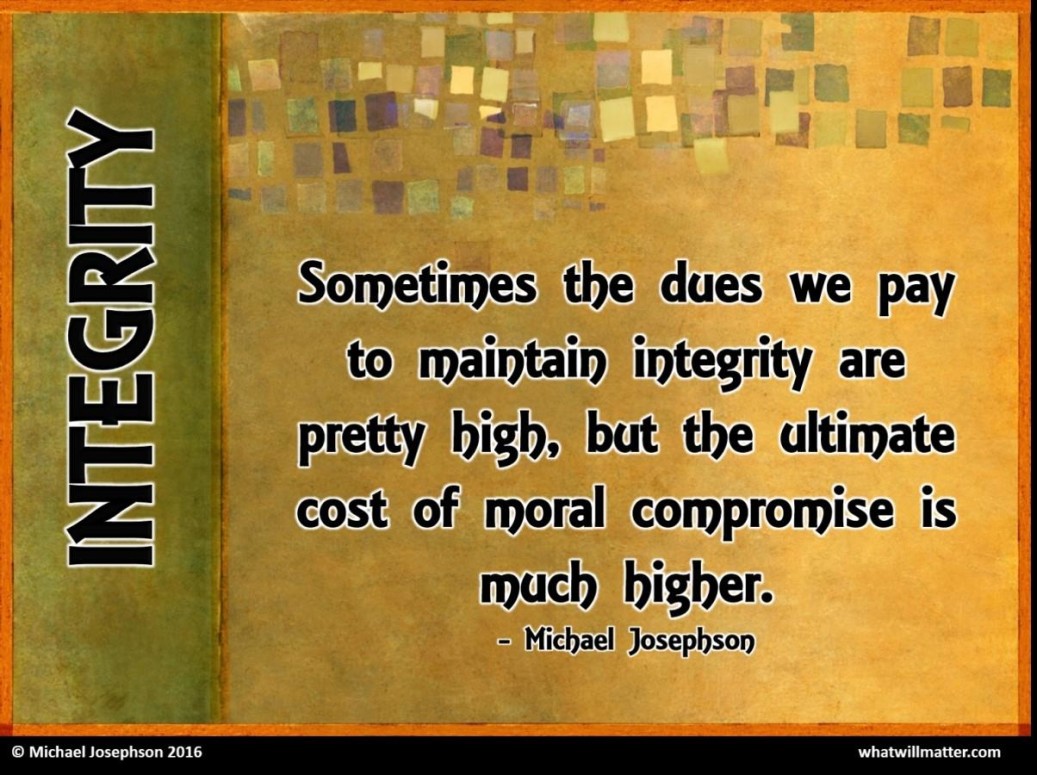“Sometimes the dues we pay to maintain integrity are pretty high, but the ultimate cost of moral Compromise is much higher.”
– Michael Josephson
Integrity is often used as a synonym for honesty or even honor but it means much more. The concept of integrity is wholeness, (hence when something is disintegrated it is literally torn apart and disappears). In the context of human transactions integrity is about moral wholeness – a consistency between what a person believes, professes and does.
Sometimes a lack of integrity is hypocrisy – a demonstration of an insincere claim to virtue in belief or conduct. But sometimes a lack of integrity is the result on a sadly human weakness of moral will.
Maintaining our integrity in a world filled with temptations and rationalizations is difficult, much like staying on a diet in a world filled with deliciously unhealthy options. Both require will power.
The most effective motivations for physical fitness are concerns about physical health and/or vanity. The will to build and safeguard integrity is similar. It is strengthened by a deep concern for our moral health, our self image and what others think of us and, for many, the place we earn in an afterlife. And since trust and credibility are so important in personal relations, integrity is also a pragmatic asset that improves relationships and promotes success.
The motivation to preserve integrity is also fueled by a desire to be proud of ourselves and to earn the admiration and esteem of others, especially those we love.
A well developed moral conscience is important to maintaining integrity. It reminds us to think beyond the moment and reject the pleasure of short-term gratifications and muffles our screaming passions with shame.
Integrity, like character itself, is demonstrated when we do the right thing even when it costs more than we want to pay, when we do what we believe is right even when no one is looking and, sometimes when we know everyone is looking.
Sometimes it means we do more than we have to and less than we are allowed to, not because we think it will change the world but because we refuse to allow the world to change us. (see more articles and subscribe to whatwillmatter.com)

